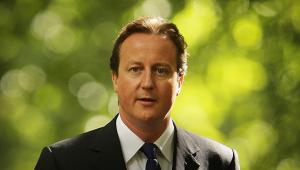By Lucy Phillips
25 March 2010The public sector has been left in the dark as to the expected squeeze in finances after Chancellor Alistair Darling delivered a Budget that was light on economic detail and heavy on pre-election politics.
In his March 24 Budget, the chancellor revised down his public sector borrowing forecast for this year from £178bn to £167bn. He also downgraded his growth forecast for next year to between 3% and 3.5%, still 1% higher than the estimates of most independent economists.
Following on from last month’s better-than-expected public finance figures, Darling revealed that tax revenues from December to February were higher than anticipated. This was mainly due to a one-off tax on bankers’ bonuses in 2009/10, which raised £2bn, more than twice the Treasury’s estimate in the Pre-Budget Report. Lower-than-expected levels of unemployment had also contributed to greater funds from income tax receipts.
The chancellor said the government was on track to achieve £20bn of savings set out in December’s Pre-Budget Report through greater efficiency, slashing public sector pay and pensions and scaling back several major projects, but he failed to provide any certainties for departmental spending beyond 2011.
Instead, he focused on a number of temporary pre-election measures, such as scrapping stamp duty on homes below £250,000 for first-time buyers for two years, extending the jobs guarantee for 18 to 24- year-olds and raising child tax credits for parents with young children from 2012.
Darling said his was ‘the fastest deficit reduction plan of any G7 country’, and the government was on course to meet the target it set itself of halving the deficit by 2014 in the Fiscal Responsibility Act.
While admitting that some people were ‘demanding immediate cuts to public spending’, he said such a policy would be ‘wrong and dangerous’. He added: ‘To start cutting now risks derailing recovery – which is already bringing down borrowing more rapidly than expected. To go faster, in the face of uncertainty, would mean taking a huge risk with people’s jobs, incomes and our future.’
Commentators said the Budget did little to aid the public sector’s understanding of the cuts to come.
Gemma Tetlow, senior research economist at the Institute for Fiscal Studies, told Public Finance the outlook for government departments had not changed much since December. It was still the case that the protection afforded to areas such as health and education meant ‘the pressure on other departments is greater’ – resulting in cumulative cuts of almost 25% by 2014/15.
She said £26bn in savings were needed by 2012/13 but much had still not been accounted for. ‘The big unknown in the plan to halve the deficit is what the spending plans are for departments. It is true that, given their plans for taxation and spending over the next four years, it looks like they are on course to halve the deficit,’ she added.
Steve Schifferes, professor of financial journalism at London’s City University, said the level of detail on budget cuts was ‘disappointing’.
‘It was an election Budget, a curious kind of giveaway Budget in which all giveaways were funded by some other gimmick,’ he said.
‘The plan is no more or less credible than before the Budget,’ he added.
Schifferes accused the government of milking the borrowing figures.
‘Really, the improvements are fairly small given the scale of it. Even at the end of the next Parliament, the deficit will be twice as high as anything in the past,’ he said.
But Tetlow praised the chancellor for his ‘prudent’ approach to the extra £11bn of unexpected revenue. ‘They have chosen to bank most of that and not chosen to give away anything extra,’ she said. She labelled the lower forecast in growth ‘cautious’, although she said it represented a permanent reduction in gross domestic product performance that the government was no longer ‘expecting to bounce back’.
Martin Weale, director of the National Institute of Economic and Social Research, added: ‘The fiscal position is slightly better [than in December] and the chancellor sensibly decided to absorb that into lower borrowing. I support him on that.’
He also told PF that the growth forecast was still too optimistic. ‘For the depression to finish earlier than in the 1980s, it would be unusually short,’ he said.
On March 23, a report by the Audit Commission revealed that many councils were not making adequate plans beyond the next spending settlement in 2011 because they did not know how much their government grant would be cut.
Alan Downey, UK head of public sector at KPMG, said the Budget was ‘a missed opportunity to prepare the public sector for a radical programme of large-scale transformation, which will be painful but is clearly on the cards’.
Lena Komileva, head economist at brokers Tullet Prebon, told PF that the Budget had also failed to mitigate the risk of a downgrade to the government’s credit rating.
‘With so much uncertainty about the election, the economy and the implementation of spending cuts ahead, it is far too early to suggest that an official downgrade of the UK’s triple-A rating is unlikely,’ she said.


















